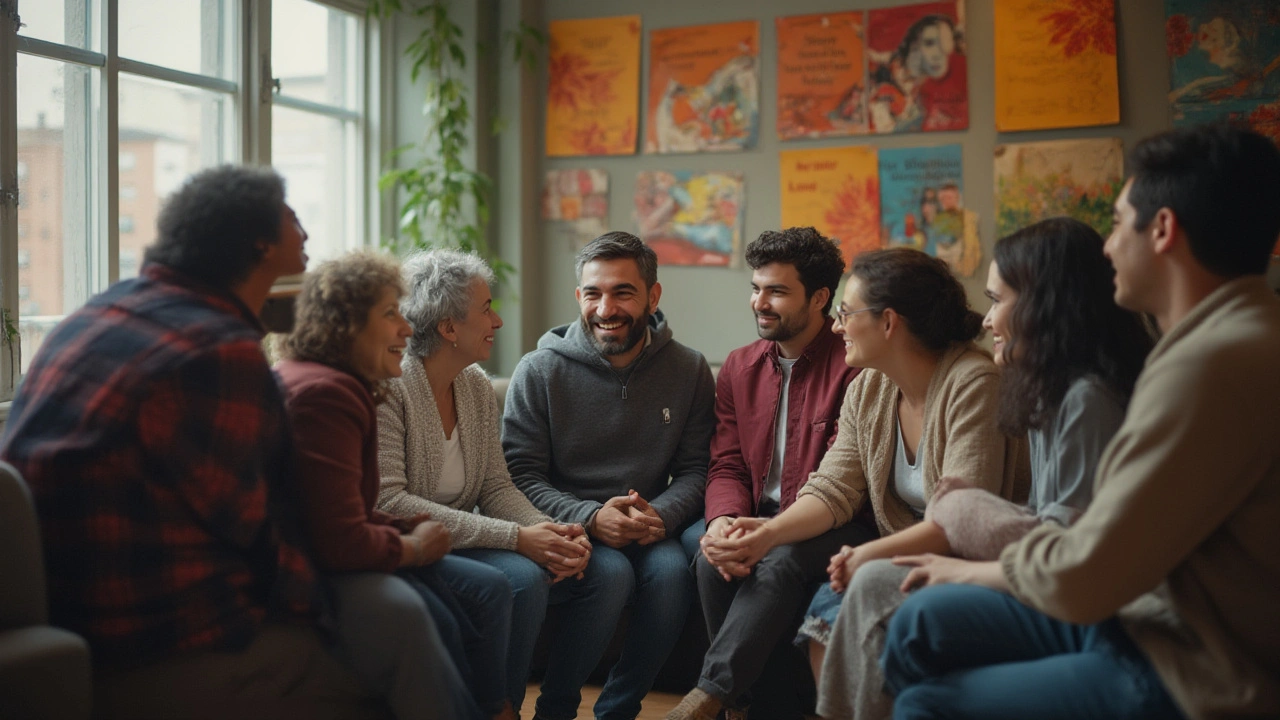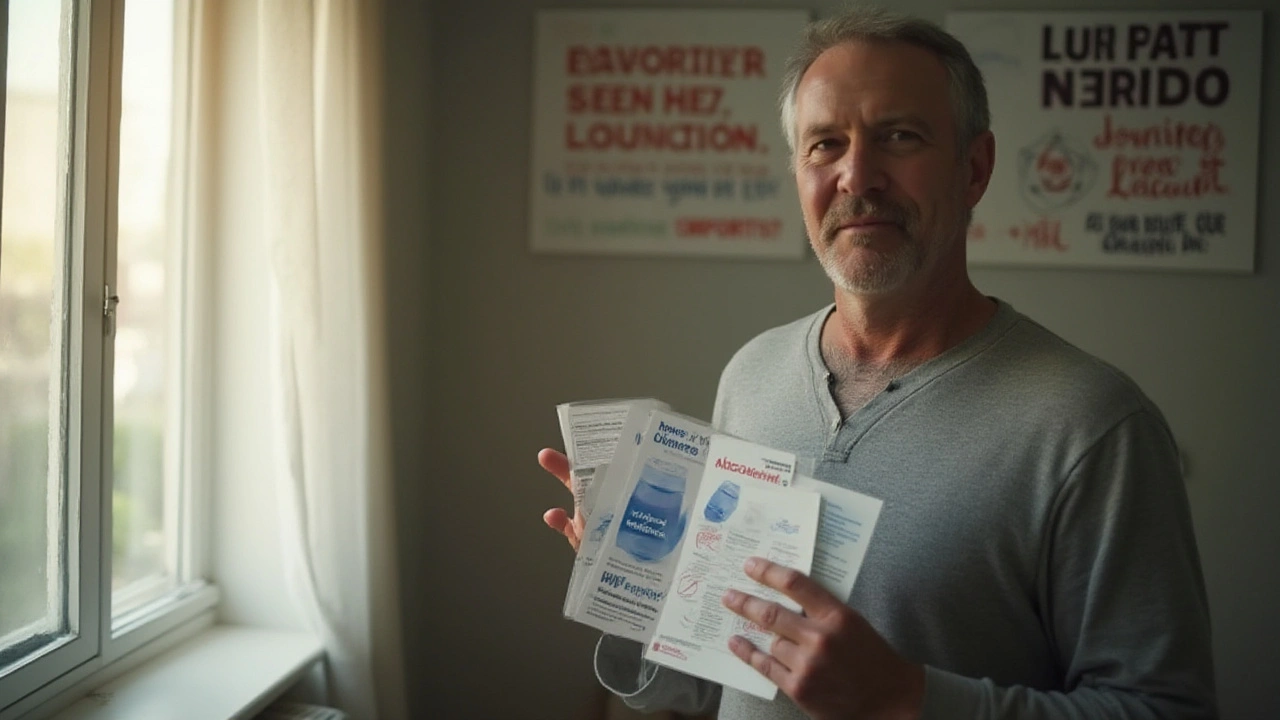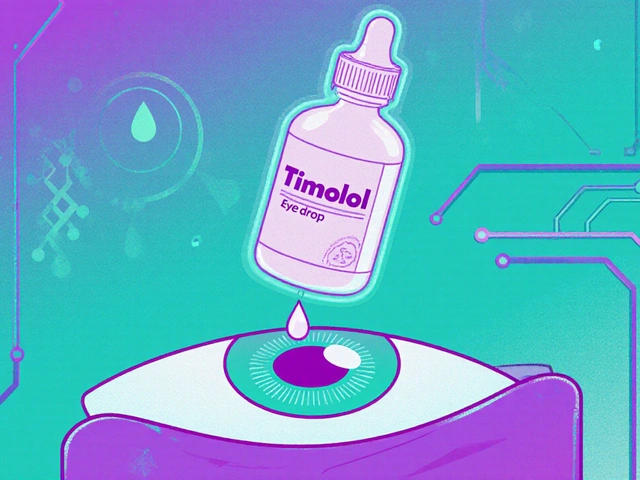
Picture this: You’re sitting in a doctor’s office, and the word ‘abacavir’ comes up. For some, that word feels a bit heavy, weighed down with suspicion and fear. HIV still carries way too much stigma, and meds like abacavir sometimes get thrown into the mix, with rumors swirling around them. So many folks hesitate because of what they’ve heard, instead of what’s real. Let’s get past myths, drill into what the science really says, and talk about why openness is more powerful than fear. People living with HIV deserve more than sideways glances and half-truths—they deserve facts that help them take control of their health and their futures.
Why the Stigma Surrounding Abacavir Exists in HIV Care
Stigma isn’t just about avoiding eye contact at the pharmacy or whispering a diagnosis. For people prescribed abacavir, it pops up in conversations, online chats, even in support group meetings. Stigma gets passed around like old stories, most of them warped or out of date. Sometimes, it’s tangled up in the bigger issues people have with HIV as a whole. People worry that taking HIV meds will label them. Even more, people have honest fears about side effects, made worse by headlines from the late 90s and early 2000s that can make abacavir sound scarier than it is today.
Medical history didn’t do abacavir any favors either. After its approval in 1998, studies raised red flags about potential cardiovascular risks if certain patients used the drug. The message stuck, but science hasn’t stood still since then. Researchers have found that with careful screening—such as for the HLA-B*5701 genetic marker—patients can safely avoid allergic responses to abacavir. It’s not about playing roulette with your health, it’s about doctors using smart screening and patients speaking up when anything feels off.
Stigma also follows misinformation about HIV—and unfortunately, outdated ideas get shared faster than updates ever do. There are still those who think you can spot someone taking HIV meds, when so many treatments just blend into regular routines. Some believe older myths like, “Only people who did something wrong get HIV,” which, honestly, doesn’t deserve any more air time. Others assume that antiretrovirals will make you feel sick all the time, when for most people they keep them feeling strong with minimal daily hassle.
It gets even trickier when abacavir is blamed for side effects that might actually come from another drug or an unrelated health issue. People swap stories in waiting rooms: “I heard abacavir messes with your heart” or “My cousin stopped abacavir because it made her break out.” For every concern, you’ll find someone repeating what they saw online rather than what happened to them. Mix the fear of health complications with rumors, and the stigma only gets stickier.
The truth is, abacavir is just one part of a toolkit that helps people living with HIV lead bright, full lives. It isn’t a magic bullet, but neither is it something to fear outright. Spotlighting the realities helps chip away at the shame that still circles HIV, and honest conversations make all the difference between living in the shadows versus fully thriving.

Facts About Abacavir: Uses, Side Effects & Safety
If you Google abacavir, you’ll see a lot about its role in HIV treatment, especially in combination with other medicines. It’s usually part of a combo pill, sometimes paired with lamivudine (like Epzicom or Kivexa) or with dolutegravir (Triumeq). Doctors have used it for decades to keep HIV controlled—people on well-managed therapy can have a normal lifespan, an incredible leap from what was possible thirty years ago.
So, let’s break down what really matters: how abacavir works, who it’s for, and what to expect.
- Abacavir is a nucleoside reverse transcriptase inhibitor (NRTI). That just means it blocks HIV from copying itself inside your body. No new copies, no spreading virus.
- Before anyone starts abacavir, a genetic screening test looks for HLA-B*5701. People with this gene have a higher risk of having a serious allergic reaction known as abacavir hypersensitivity reaction (AHR). If you test positive, your doctor picks another med—simple as that.
- Common side effects are usually mild and fade. Fatigue, headache, and nausea top the list. If something feels off, doctors want to hear about it, but most folks do just fine after a few days or weeks.
Allergy risk grabs the headlines, but it’s actually well managed. The real worry in the early 2000s was about possible increased risk of heart problems like heart attack, but recent in-depth reviews haven’t found convincing evidence that abacavir causes these events in the general population. Docs watch heart health carefully in anyone taking antiretrovirals, especially if someone has higher risks already—think high blood pressure, being a long-term smoker, or having a family history of heart troubles. If you’re worried, ask your doctor point-blank about your risk with abacavir in the mix.
What’s not talked about enough? The upside. Abacavir offers flexibility. It’s available in once-daily combos, making HIV treatment easier to manage. Some people say it’s less likely to cause sleeping problems or kidney issues compared to drugs like tenofovir. For someone who can’t tolerate other meds, abacavir could be the perfect fit and help them stick with their plan, which is what actually keeps them healthy.
Still, side effects are real, and every body is different. Look out for fever, rash, stomach pain, cough, or flu-like feelings in the first six weeks on abacavir. If that happens, be safe and let your doctor know immediately—don’t try to wait it out. Same goes for any new symptom that’s worrying. Doctors and pharmacists are much more supportive than people expect, and most genuinely want to help people stay healthy and confident about their care.
A study shared by the British HIV Association even showed that with proper patient counseling, fewer people feared their meds, and more stuck to them over time. So, knowledge really does make a difference. The more you know, the easier it is to make calm, informed decisions—not just about abacavir, but about your whole health journey.

Tips for Tackling Stigma and Advocating for Support
Stigma shrinks when real people push back against old ideas. You don’t have to become an activist to make a difference—sometimes, just refusing to soak up shame is powerful. People living with HIV, their families, and healthcare workers all have a part in flipping the script.
If you’re taking—or thinking of taking—abacavir, here’s what helps:
- Arm yourself with facts first—not everything your old high school friend posts on social media is true. Check sites like the World Health Organization, local HIV support organizations, or talk to your healthcare team.
- Know your labs: Get HLA-B*5701 tested before you start. Track your bloodwork and bring up any weird changes. Your health is the priority, not anyone else’s opinion.
- Side effects happen with any med, but doctors work with you until the regimen fits. If abacavir doesn’t feel right, there are other options. Don’t stop taking it on your own—always call your clinic first.
- Don’t keep silent about stigma. Sometimes, just saying, “Do you have actual experience with this, or did you just hear it somewhere?” can open honest conversations. Info cuts through shame way faster than arguments ever do.
- Join a support group—even an online one. Hearing from real people busts myths fast. Many groups have people who’ve tried every combo on the market and get what you’re feeling.
- If your pharmacy or clinic staff seem uncomfortable, remember—it’s their job to help you. Standing your ground without apology shows that getting HIV care is just routine healthcare, end of story.
Small daily actions matter. Keeping your meds visible, openly asking doctors about changes, or sharing your own experiences if you feel safe—all become tiny acts of rebellion against stigma. In countries and cities with active HIV awareness, more people are living longer and facing fewer barriers, because the conversation is out in the open.
Years ago, people with HIV had little reason to hope for a long, healthy life. Today, with antiretrovirals like abacavir, that’s just not true. Science and compassion have opened doors; now, it’s time for society to walk through. If you’re living with HIV, you’re not a statistic, you’re not your prescription, and you’re definitely not someone who should have to hide. The best weapon against stigma is always the truth—sharpened by facts and stories, told by people bold enough to demand better.
Sarah McCabe
abacavir got a bad rap bc of old headlines but honestly? it’s been a game changer for so many people. i’ve seen friends go from scared to thriving just by getting screened and sticking with it. no drama, no stigma, just science. 🙌
Ron Prince
lol so now we’re celebrating abacavir like it’s some miracle drug? you know what’s *really* dangerous? letting people take meds without understanding the real risks. the heart thing isn’t a myth, it’s just buried under corporate PR. someone’s gotta say it: this isn’t magic, it’s chemistry with consequences.
King Splinter
okay but let’s be real - if you’re gonna take a drug that has a 5% chance of killing you via allergic reaction, maybe don’t? i mean, sure, they test for it now but what if the lab messes up? what if your doctor is rushed? what if your insurance won’t cover the test? this whole ‘just get screened’ thing sounds great on paper until you’re the one sitting in a waiting room with a fever and a rash wondering if you just got screwed by the system. abacavir isn’t the villain, but pretending it’s risk-free is just as dangerous as the stigma.
Michael Friend
every single person who says ‘abacavir is safe now’ is either a pharma rep or someone who’s never had to deal with the aftermath of a hypersensitivity reaction. i know someone who lost 30 pounds in two weeks because they were misdiagnosed. they called it ‘flu’ until it was too late. this isn’t about stigma - it’s about systemic negligence wrapped in a pretty infographic.
Jerrod Davis
It is imperative to underscore that the clinical efficacy of abacavir, when administered under strict adherence to HLA-B*5701 screening protocols, is demonstrably favorable. However, the dissemination of anecdotal narratives in lieu of peer-reviewed data constitutes a significant epistemological flaw in public health communication. One must exercise rigorous discernment when evaluating therapeutic options.
Dominic Fuchs
so we’ve moved from ‘hiv is a death sentence’ to ‘abacavir is a miracle’ and now we’re all supposed to high five and call it progress? i mean… sure. but the real win is that people are finally talking. even if they’re wrong. even if they’re loud. even if they use emojis. at least they’re not whispering anymore. 🤷♂️
Asbury (Ash) Taylor
you’re not alone. every time you take your pill, you’re choosing life over fear. and that’s not just brave - it’s revolutionary. if you’re scared, that’s okay. but don’t let the noise of the past silence your future. you’ve got this. and if you need someone to talk to? i’m here. always.
Kenneth Lewis
abacavir? yeah i took it for like 3 months. got a rash, panicked, stopped it. turned out it was just stress and laundry detergent. but honestly? i’m glad they test for the gene now. still weird to think your dna decides your med options. kinda wild. 🤔
Jim Daly
why do we even need abacavir? cant we just use something else? like why is this drug still around? everyone says its fine but then why do people keep having problems? i think its just a money thing. big pharma loves it. end of story.





Write a comment